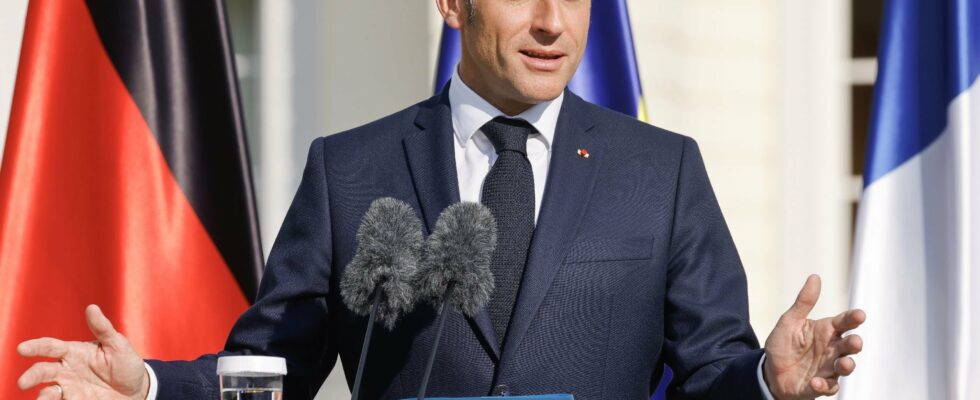Should Western weapons supplied to Ukraine be used on Russian soil? This is the question that obsesses Washington and European capitals. On the French side, President Emmanuel Macron, visiting Germany, is the one who goes furthest on the subject, believing that kyiv should have the right to strike Russia with Western missiles. “We must allow them to neutralize the military sites from which the missiles are fired […] the military sites from which Ukraine is attacked,” he said during a press conference during a Franco-German council of ministers at Meseberg Castle, near Berlin.
“If we tell them you do not have the right to reach the point from which the missiles are fired, in fact we tell them, we are delivering weapons to you but you cannot defend yourself,” pointed out Emmanuel Macron. “But we must not allow other targets in Russia and obviously civilian capabilities to be hit,” he nevertheless clarified. The most reluctant so far – Rome and Berlin in particular – brandish the risk of escalation, of extension of the conflict, with the implicit risk of the use of nuclear weapons by Russian President Vladimir Putin.
“We do not want an escalation,” repeated Emmanuel Macron. “What has changed is that Russia has adapted its practices a little” and is attacking Ukraine from bases in Russia. The German Chancellor, Olaf Scholz, remained more evasive, knowing that Germany refuses to deliver long-range missiles (more than 500 km) to Ukraine, unlike Paris, London and Washington. However, he was more open on the subject. “Ukraine has every possibility to do this, under international law,” he said. “It must be said clearly, she is attacked and can defend herself.”
Washington reluctant
NATO is pushing Western capitals to lift restrictions that “tie the hands behind the backs of Ukrainians”, in the words of its Secretary General, Jens Stoltenberg. On Tuesday, the head of European diplomacy Josep Borrell urged the Twenty-Seven of the EU to find a balance between fear of an escalation and the need for the Ukrainians to defend themselves, judging that kyiv must be able to strike Russian soil with Western weapons.
For their part, the United States, kyiv’s primary military supporter, does not want Ukraine to use American weapons to strike “on Russian soil”, a White House spokesperson said on Tuesday. “Our position has not changed at this stage. We do not encourage or permit the use of weapons supplied by the United States to strike on Russian soil,” said John Kirby, spokesperson for the Security Council. national security.
According to Vladimir Putin, in this scenario it would be an escalation because even if it is the Ukrainian military who carry out the strikes, they would be “prepared” by the Westerners who supply them with the weapons. The Russian president on Tuesday threatened “serious consequences” in the event of the use of Western weapons against his territory.
A summit for peace in June
“In Europe, especially in small countries, they must think about what they are playing with. They must remember that they are very often states with a small territory and a very dense population,” warned the head of the Kremlin during a press briefing in Tashkent, Uzbekistan. “This factor is a serious thing that they must have in mind before talking about striking deep into Russian territory,” he continued. “This permanent escalation can have serious consequences.”
For his part, Ukrainian President Volodymyr Zelensky, visiting Brussels, urged his American counterpart Joe Biden to participate in the international summit on Ukraine planned in Switzerland for June 15 and 16, without Russian presence. “His absence would be like applauding Putin,” he judged, Washington having not confirmed the presence of Joe Biden at this meeting to which some 90 countries responded. On the occasion of this short visit to Brussels, timed between a trip to Madrid on Monday and another to Lisbon on Tuesday afternoon, Volodymyr Zelensky and Belgian Prime Minister Alexander De Croo signed a cooperation agreement including the supply by the Belgium of 30 F-16 aircraft by 2028.
Volodymyr Zelensky then went to Portugal, where he signed a bilateral cooperation agreement providing for military aid for the year 2024 amounting to 126 million euros. From Lisbon, he warned the international community that it was “very important for the Ukrainians that the world does not tire” of this war which has continued for more than two years at the gates of the European Union.
